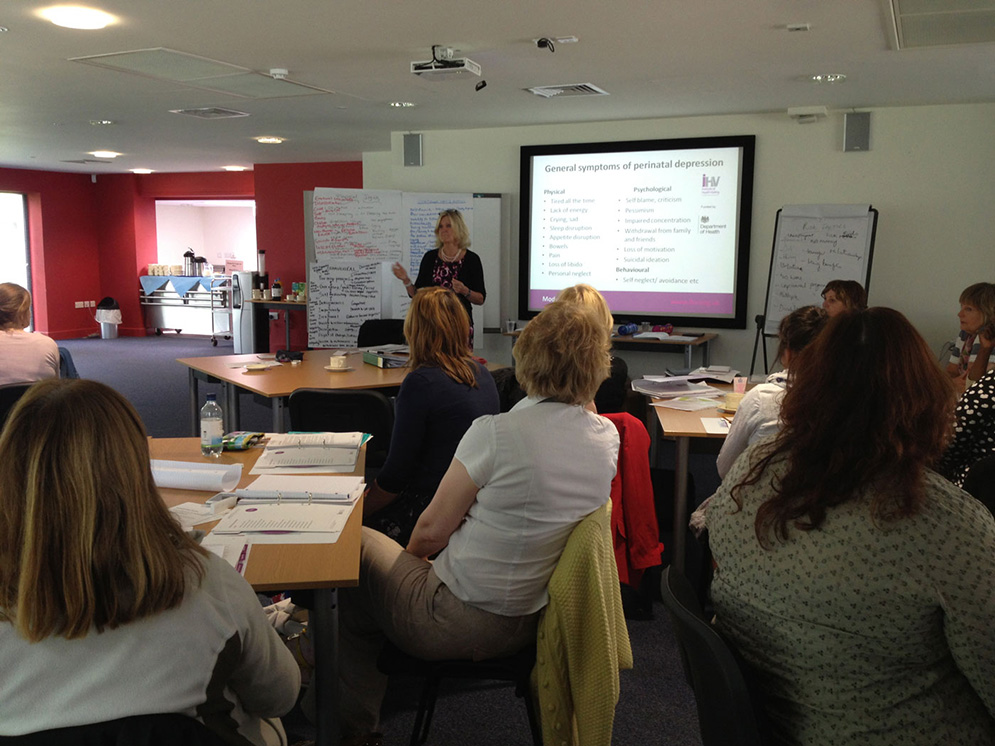Dr Carrie Ladd – @LaddCar
Royal College of General Practitioners Clinical Fellow in Perinatal Mental Health and GP in Oxfordshire
Although society has instilled a deep expectation that women will make a seamless transition to motherhood, there is much potential for ill health – both physical and psychological. Women may experience mental health problems similar to other times of life such as depression or anorexia but also conditions specific to the perinatal period such as postpartum psychosis. 1 in 5 women suffer mental health problems during this time but unfortunately only 50% of cases are diagnosed and even less receive the recommended specialist perinatal mental health care, meaning many women slip through the net.
There are many reasons for this under detection including the under reporting from women of symptoms for fear of failure, judgement, stigma or the involvement of social services leading to the separation from their baby. During a woman’s perinatal journey, health professionals have numerous opportunities to ask about mental health symptoms and to pick up a problem when there is one. Competing priorities, time pressures and a presumption someone else has asked are all reasons why health professionals may not ask a woman about their mental health and so miss a crucial diagnosis.
The consequences of untreated maternal mental health problems are immense. As well as the emotional, physical and psychological effects on the woman, her child may be affected too both in the short and long term. It is estimated the economic burden of maternal mental health problems is £8.1 billion for every one-year cohort of births and approximately 75% of this is for impact on the child in education and social care amongst other areas. However, in the absence of other adverse factors, early recognition and prompt treatment can mitigate this risk leading to better outcomes for all involved.
So how can those of us who work with women during the perinatal time improve this situation?
An excellent place to start is the five module elearning series on perinatal mental health available on the Health Education England elearning for healthcare (HEE elfh) platform, produced in conjunction with the Royal College of General Practitioners (RCGP) and available via open access to all. These are aimed at all healthcare professionals who may be involved in the care of women during the perinatal time. They have been written by five different authors including a consultant psychiatrist, obstetrician, health visitor, midwife and myself each giving a different perspective.
http://www.e-lfh.org.uk/programmes/perinatal-mental-health
As well, the RCGP in conjunction with NHS England has produced a toolkit of resources for health professionals to help women with perinatal mental health problems. This is a diverse collection of clinical guidance, waiting room posters, teaching material, third sector organisations, video links, website links and lots of useful patient information leaflets. It is not intended as a comprehensive text book but it is hoped to complement and support the current provision of advice, treatment and support for women & their families experiencing mental health problems during this time. The toolkit is available now with open access on the RCGP website.
References:
- Bauer A, Parsonage M, Knapp M et al. The costs of perinatal mental health problems. 2014; London: Centre for Mental Health
- Khan L. Falling through the gaps: perinatal mental health and general practice. 2015; London: Royal College of General Practitioners and Centre for Mental Health.



Leave a comment Required*